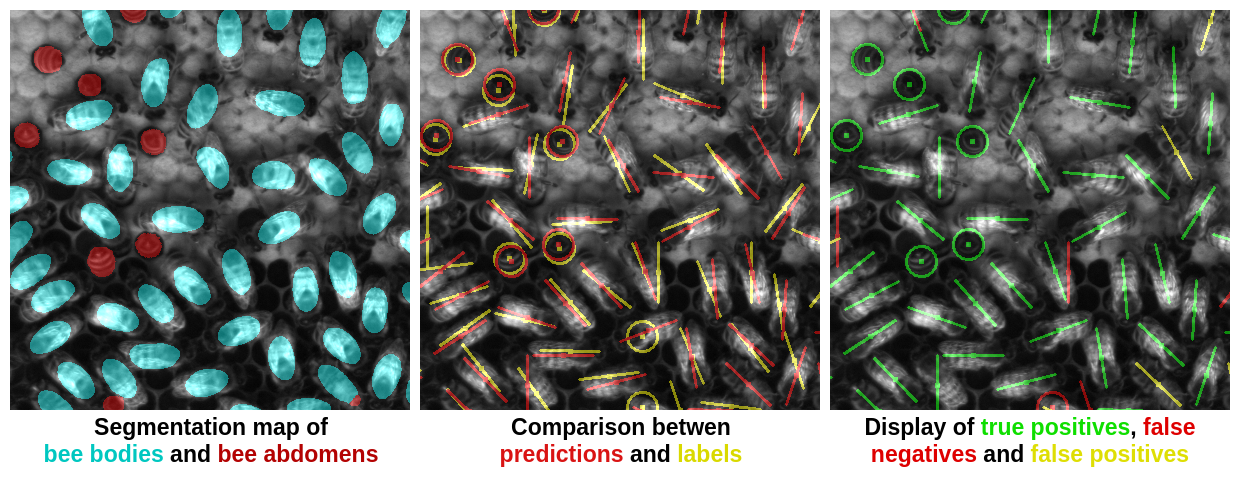This repository contains code and instructions for a segmentation based object detection method, initially developed for a beehive environment and described here: Towards Dense Object Tracking in a 2D Honeybee Hive.
The repository is prepared for the beehive dataset available on this webpage. The model is also a simplified version of the one used in the paper : single frame only, no gaussian weights, smaller resolution.
- Python 3.5+
- TensorFlow (Tested on 1.12)
- OpenCV
- Numpy
Download one of the two bee datasets available, for example the 30 fps one:
30 fps: images, annotations
70 fps: images, annotations
Create an empty folder to uncompress the two files, the resulting file structure should look like:
dataset
+-- frames
| +-- *.png
+-- frames_txt
| +-- *.txt
You can train the model by passing as an argument the path to your dataset root folder:
python3 train.py path_to_dataset
A subset of the images will be separated for testing (parameter --validation_num_files). You can observe that the loss value decreases with time.
After training you can predict the results on the test set by running:
python3 predict.py path_to_dataset
The results will be stored in a new predict_results folder. For each input frame, three images will be generated :

An aggregate results file of error metrics for all test images is also created : average_error_metrics.txt.
To predict on a new dataset, you can use the script predict_template.py, by replacing the function predict_data_generator to load your own dataset.
To train on a new dataset, you can use the script train_template.py by replacing the functions train_data_generator and eval_data_generator (generate a pair of images image_data, label_data).
The labels for the beehive dataset were created using a custom tool.
If you have any questions about this project, please contact:
laetitia.hebert at oist.jp
kasia.bozek at oist.jp